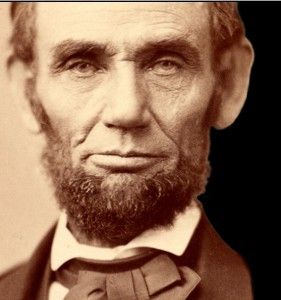 Abraham Lincoln’s journey to his Washington, D. C. inauguration continues. Leaving New York City, the president-elect travels through New Jersey en route to Philadelphia. In the highly-charged political climate, rumors of assassination attempts swirl. Nonetheless, Lincoln is well-received in New Jersey, and a reported 250,000 people turn out to greet him in Philadelphia.
Abraham Lincoln’s journey to his Washington, D. C. inauguration continues. Leaving New York City, the president-elect travels through New Jersey en route to Philadelphia. In the highly-charged political climate, rumors of assassination attempts swirl. Nonetheless, Lincoln is well-received in New Jersey, and a reported 250,000 people turn out to greet him in Philadelphia.
From afar, Lincoln’s journey has been followed with contempt by many white southerners. Today’s Charleston Mercury comments:
LINCOLN’s Pilgrim’s Progress continues to occupy the greater part of the town talk. His speeches increase in asinine qualities, and excite almost as much disgust among the Republicans as other people. A few of their papers profess to admire them, but that is all bosh. His character is much canvassed. From all I can gather, he must be a low fellow, both in ideas and manners.
As to the future of the Confederate States of America, the same author declares:
That it will be necessary for the Confederate States to vindicate their nationality by force of arms, few seem to doubt; and that they will sit quietly at home and permit themselves to be harassed by the United States fleet without attempting retaliation, no one believes.
Against this backdrop, well-known Georgia Baptist minister Adiel Sherwood, speaking of “Baptist belief and practice,” defends the practice of African slavery in an imaginary conversation:
Nor would I own [a slave], yet I cannot see sin in the institution itself, if the slaves are properly treated. Neither the Saviour nor the Apostles condemn the relation of Master and slave: Paul teaches both their duty – the former to treat the subordinate properly, and the latter to obey for conscience sake. The lawgiver of the universe and the church shuts the gates of heaven against drunkards, adulterers, and other wicked classes, but never censures slaveholders. Tens of thousands were in bondage in apostolic times, but if the relation were criminal, would the New Testament not condemn it?
Sources: “Grand Ovation to Abraham Lincoln,” Philadelphia Daily News, February 22, 1861 (link); The Charleston Mercury, February 21 (link); “Religious Liberty and Slavery,” Christian Index, February 20, 1861; Lincoln image (link)


